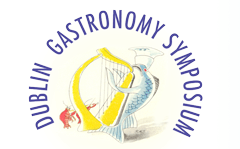Start Date
26-5-2020 5:30 PM
End Date
26-5-2020 5:45 PM
Description
Daily food consumptions were crucial for the survival of British and other foreign traders in Canton during the eighteenth and early nineteenth centuries. Since controlling food supplies was regarded as an effective way of controlling foreigners for Chinese authorities, British merchants had to cope with these restrictions from both Chinese authorities and the local environment. Since food and drink were important markers of one’s identity, preserving one’s food culture was to preserve personal, communal and national identities. In this circumstance, British traders’ identities were challenged as their food supply was confined. However, thanks to trade, they managed to establish their food culture by finding alternative food supplies, creating a culinary system suitable to the local environment, introducing European food and food culture to China. During this process, their identities were reshaped by the local environment and culture.
DOI
https://doi.org/10.21427/z8qh-se66
Included in
Reshaping Food Practices and Identities: Anglo-Sino Encounters in Canton
Daily food consumptions were crucial for the survival of British and other foreign traders in Canton during the eighteenth and early nineteenth centuries. Since controlling food supplies was regarded as an effective way of controlling foreigners for Chinese authorities, British merchants had to cope with these restrictions from both Chinese authorities and the local environment. Since food and drink were important markers of one’s identity, preserving one’s food culture was to preserve personal, communal and national identities. In this circumstance, British traders’ identities were challenged as their food supply was confined. However, thanks to trade, they managed to establish their food culture by finding alternative food supplies, creating a culinary system suitable to the local environment, introducing European food and food culture to China. During this process, their identities were reshaped by the local environment and culture.
